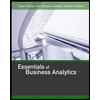What is a good response to... Hi All! I’m late posting this week but still wanted to contribute. Here’s my Module 5 Discussion Post: When applying the three tiers of prevention to cancer, I’m also compelled to mention that the effectiveness/validity of tiers one and two are more dependent on the induvial in terms of how health conscious they are/whether they the know their history and conditions they are predisposed to. Some people are vigilant while others procrastinate prioritizing their health until there’s a significant issue. Additionally, tiers one/two prevention may also be influenced by the treating physician – do they listen to their patients, how proactive are they? And lastly, does the patient advocate for themselves? All factors to keep in mind. Tier One – Primary Prevention (preventative behavior/habits) While this tier is applicable for cancer (especially certain types) and being health conscious is always beneficial, it’s not as effective for those who are predisposed for hereditary reasons. According to my research, the three risk factors associated with cancer (as a cause of premature death), are environment, genetics, and personal habits. Therefore, it’s crucial to avoid smoking/drinking or other various unhealthy habits as part of primary prevention. And those “at risk” for any reason should have screening done regularly as a “preventative” measure. It’s also said that there’s a direct link between higher incomes/social status and better health/longer life expectancy. Is there a way to raise awareness or make healthier habits more attainable/affordable to certain demographics as part of the primary prevention phase? Tier Two – Secondary Prevention (routine care for early detection/treatment) This phase is applicable and crucial when applied to cancer, reason being that for those in remission, have indicators for a potential cancer diagnosis, or already have an early diagnosis, routine screening/care is the only way to keep cancer in remission, prevent it from spreading, and ultimately is the most effective way to prevent premature death. Tier Three – Tertiary Prevention (treatment for those with chronic/terminal ailments related to cancer) This phase is certainly applicable for cancer and unfortunately all too common, especially because some forms of cancer are hard to detect until it’s too late. That said, this phase is more relevant to palliative care or keeping patients comfortable related to their diagnosis/chronic symptoms resulting from a cancer diagnosis. It also involves rehabilitation for not only physical symptoms, but the mental impact cancer can have as well.
What is a good response to...
Hi All! I’m late posting this week but still wanted to contribute. Here’s my Module 5 Discussion Post:
When applying the three tiers of prevention to cancer, I’m also compelled to mention that the effectiveness/validity of tiers one and two are more dependent on the induvial in terms of how health conscious they are/whether they the know their history and conditions they are predisposed to. Some people are vigilant while others procrastinate prioritizing their health until there’s a significant issue. Additionally, tiers one/two prevention may also be influenced by the treating physician – do they listen to their patients, how proactive are they? And lastly, does the patient advocate for themselves? All factors to keep in mind.
Tier One – Primary Prevention (preventative behavior/habits)
While this tier is applicable for cancer (especially certain types) and being health conscious is always beneficial, it’s not as effective for those who are predisposed for hereditary reasons. According to my research, the three risk factors associated with cancer (as a cause of premature death), are environment, genetics, and personal habits. Therefore, it’s crucial to avoid smoking/drinking or other various unhealthy habits as part of primary prevention. And those “at risk” for any reason should have screening done regularly as a “preventative” measure. It’s also said that there’s a direct link between higher incomes/social status and better health/longer life expectancy. Is there a way to raise awareness or make healthier habits more attainable/affordable to certain demographics as part of the primary prevention phase?
Tier Two – Secondary Prevention (routine care for early detection/treatment)
This phase is applicable and crucial when applied to cancer, reason being that for those in remission, have indicators for a potential cancer diagnosis, or already have an early diagnosis, routine screening/care is the only way to keep cancer in remission, prevent it from spreading, and ultimately is the most effective way to prevent premature death.
Tier Three – Tertiary Prevention (treatment for those with chronic/terminal ailments related to cancer)
This phase is certainly applicable for cancer and unfortunately all too common, especially because some forms of cancer are hard to detect until it’s too late. That said, this phase is more relevant to palliative care or keeping patients comfortable related to their diagnosis/chronic symptoms resulting from a cancer diagnosis. It also involves rehabilitation for not only physical symptoms, but the mental impact cancer can have as well.
Step by step
Solved in 2 steps








